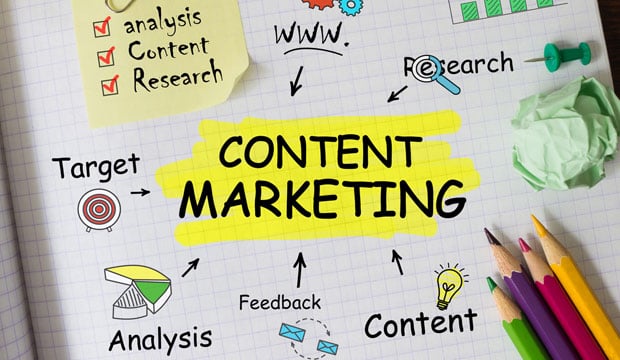In today's fast-paced and highly competitive business landscape, finding effective and efficient ways to drive growth is crucial for businesses of all sizes. One powerful tool that has emerged in recent years is growth marketing channels. These platforms and strategies, usually offered by growth agencies, offer businesses numerous opportunities to expand their reach, attract new customers, and ultimately drive success. In this piece, we will delve into the impact of growth marketing channels on business success, exploring their key components, role in enhancing brand visibility, driving customer acquisition and retention, and evaluating their impact on different platforms. We will also look at strategies for optimizing growth marketing channels and measuring their success. By the end of this article, you will have a comprehensive understanding of growth marketing channels and their potential to propel your business forward.

Defining Growth Marketing
At its core, growth marketing revolves around the idea of finding and exploiting scalable and repeatable channels that drive customer acquisition and retention. It involves identifying the most effective strategies, platforms, and tactics and constantly testing and optimizing them to achieve exponential growth.
Key Components of Growth Marketing Channels
Growth marketing channels typically consist of a combination of online platforms, tools, and techniques. These include:
- Social Media: With billions of monthly active users, social media platforms like Facebook, Instagram, and Twitter offer immense opportunities for businesses to connect with their target audience, build brand awareness, and drive customer engagement.
- Content Marketing: Creating and distributing valuable and relevant content has become a cornerstone of growth marketing efforts. Through blog posts, articles, videos, and infographics, businesses can establish thought leadership, attract organic traffic, and engage with their potential customers.
- Email Marketing: Despite the rise of various communication channels, email marketing remains a powerful tool for businesses to nurture leads, drive conversions, and retain customers. Personalized email campaigns and automation allow for targeted and timely messaging.
While social media, content marketing, and email marketing are key components of growth marketing channels, there are several other strategies and platforms that businesses can leverage to achieve their growth goals.
Search Engine Optimization (SEO): In order to improve organic visibility and drive targeted traffic to their websites, businesses often invest in SEO. By optimizing their website's content, structure, and technical elements, they can rank higher in search engine results pages and attract potential customers who are actively searching for their products or services.
Pay-Per-Click Advertising (PPC): PPC advertising allows businesses to display targeted ads on search engines and other online platforms. By bidding on relevant keywords, businesses can ensure that their ads are shown to users who are actively searching for products or services similar to theirs. This targeted approach can result in higher conversion rates and a positive return on investment.
Affiliate Marketing: Affiliate marketing involves partnering with individuals or businesses (affiliates) who promote a company's products or services in exchange for a commission. This performance-based marketing strategy can help businesses expand their reach, increase brand awareness, and drive sales through the efforts of their affiliates.
Influencer Marketing: With the rise of social media influencers, businesses have started leveraging their popularity and influence to promote their products or services. By partnering with influencers who have a large and engaged following, businesses can tap into their audience and generate brand awareness, credibility, and sales.
Referral Programs: Referral programs incentivize existing customers to refer their friends, family, or colleagues to a business. By offering rewards or discounts for successful referrals, businesses can tap into the power of word-of-mouth marketing and turn their customers into brand advocates.
Mobile Marketing: With the increasing use of smartphones, businesses are focusing on mobile marketing strategies to reach their target audience. This includes mobile advertising, mobile-optimized websites and apps, and location-based marketing techniques to deliver personalized and relevant messages to users on their mobile devices.
By incorporating these additional strategies and platforms into their growth marketing channels, businesses can expand their reach, engage with their target audience, and drive sustainable growth. In this link you can have an example of a business that substantially increased its revenue while expanding its marketing channels.

The Role of Growth Marketing in Business Success
Now that we have a clearer understanding of growth marketing channels, let's explore how they can contribute to overall business success:
Enhancing Brand Visibility
One of the primary benefits of growth marketing channels is the ability to significantly increase brand visibility. Through social media campaigns, content marketing efforts, and targeted email campaigns, businesses can reach a wider audience, establish their brand as an industry leader, and gain the attention and interest of potential customers.
For example, a business that utilizes growth marketing strategies can create engaging and shareable content on social media platforms such as Facebook, Twitter, and Instagram. By consistently posting relevant and valuable content, the business can build a loyal following and increase its brand visibility. This increased visibility can lead to more opportunities for customer engagement and ultimately, more sales.
Driving Customer Acquisition and Retention
Growth marketing channels also play a pivotal role in driving customer acquisition and retention. By utilizing well-crafted content marketing strategies, businesses can attract and engage with potential customers, nurturing them through the buyer's journey until they convert.
For instance, a business can create a comprehensive content marketing plan that includes blog posts, videos, and infographics. By addressing the pain points and challenges of their target audience, businesses can provide valuable solutions and establish themselves as trusted advisors. This not only helps to attract potential customers but also keeps them engaged throughout the buyer's journey, increasing the likelihood of conversion.
Additionally, effective email marketing campaigns can not only drive conversions but also ensure repeat purchases and long-term customer loyalty. By segmenting their email lists and sending personalized and relevant content, businesses can nurture their existing customers, keeping them engaged and satisfied. This can lead to increased customer retention and ultimately, a higher customer lifetime value.
Evaluating the Impact of Different Growth Marketing Channels
Now that we understand the significance of growth marketing channels, it's important to evaluate their impact on different platforms. Let's take a closer look at a few key growth marketing channels:
Social Media as a Growth Channel
Social media platforms offer businesses unparalleled reach and engagement opportunities. By leveraging these platforms strategically, businesses can establish brand presence, engage with their audience, and drive website traffic. Social media advertising, influencer partnerships, and engaging content all contribute to social media's potential as a growth marketing channel.
When it comes to social media advertising, businesses have the ability to target specific demographics, interests, and behaviors. This level of targeting ensures that the right audience sees the ads, increasing the chances of conversion. Additionally, social media platforms provide detailed analytics and insights, allowing businesses to track the performance of their campaigns and make data-driven decisions.
Influencer partnerships have also become a popular strategy for growth marketing on social media. By collaborating with influencers who have a large and engaged following, businesses can tap into their audience and gain exposure to a new customer base. This can lead to increased brand awareness, credibility, and ultimately, growth.
Content Marketing for Business Growth
Content marketing has evolved into a fundamental growth marketing channel for businesses. By producing valuable, educational, and entertaining content, businesses can not only drive organic traffic but also establish themselves as industry experts. High-quality blog articles, engaging videos, and informative infographics can all contribute to driving growth through content marketing.
When it comes to blog articles, businesses can use them to provide in-depth insights, answer common questions, and showcase their expertise. By consistently publishing well-researched and informative articles, businesses can attract organic traffic from search engines and position themselves as thought leaders in their industry.

Engaging videos have also become a powerful tool for growth marketing through content. Videos have the ability to captivate audiences, convey complex information in an easily digestible format, and evoke emotions. By creating compelling videos that resonate with their target audience, businesses can increase brand awareness, engagement, and ultimately, drive growth.
Additionally, informative infographics can be a highly effective way to present data and statistics in a visually appealing and shareable format. Businesses can use infographics to simplify complex information, tell a story, and generate interest in their products or services. By creating visually appealing and informative infographics, businesses can attract attention, drive traffic, and contribute to their overall growth.
Email Marketing: A Powerful Growth Tool
Email marketing remains a highly effective growth marketing channel. By carefully curating and personalizing email campaigns, businesses can nurture leads, drive conversions, and build long-lasting relationships with their customers. Email automation and personalized messaging allow businesses to deliver the right message at the right time, significantly impacting growth and revenue.
One of the key advantages of email marketing is its ability to target specific segments of a business's audience. By segmenting the email list based on demographics, interests, and behaviors, businesses can tailor their messages to resonate with each segment. This personalization increases the chances of engagement and conversion, ultimately driving growth.
Email automation is another powerful feature of email marketing. Businesses can set up automated email sequences that are triggered by specific actions or events, such as a user signing up for a newsletter or making a purchase. These automated sequences allow businesses to deliver timely and relevant content, nurture leads, and guide customers through the sales funnel, ultimately contributing to growth.
Measuring the Success of Growth Marketing Channels
Measuring the success of growth marketing efforts is essential to optimizing strategies and achieving continuous improvement. Here are some key performance indicators (KPIs) and tools for tracking growth marketing success:
Key Performance Indicators for Growth Marketing
Some important KPIs include customer acquisition cost (CAC), customer lifetime value (CLTV), conversion rates, website traffic, and social media engagement. By analyzing these metrics, businesses can gain insights into the effectiveness of their growth marketing channels and make data-driven decisions.
Tools for Tracking Growth Marketing Success
A plethora of tools are available to track and analyze growth marketing efforts. Google Analytics, for instance, provides valuable information about website traffic, user behavior, and conversion rates. Social media management tools, such as Hootsuite or Sprout Social, allow businesses to monitor and analyze social media engagement. These tools can help businesses measure and optimize their growth marketing strategies effectively.
Strategies for Optimizing Growth Marketing Channels
Optimizing growth marketing channels requires continuous testing, experimentation, and refining. Here are a couple of strategies that can help businesses maximize the impact of their growth marketing efforts:
Personalization in Growth Marketing
Personalization plays a crucial role in growth marketing. By creating tailored content, offers, and experiences for individual customers, businesses can significantly enhance engagement, conversions, and customer loyalty. Personalization can be achieved through email segmentation, dynamic website content, and personalized advertising campaigns.
A/B Testing for Growth Channel Optimization
A/B testing is a tried-and-true method for optimizing growth marketing channels. By testing different variations of content, designs, and calls-to-action, businesses can identify which elements produce the best results. This iterative approach allows for continuous improvement and optimization of growth marketing efforts.

What Are You Waiting For?
Growth marketing channels are at your doorstep. They offer immense potential for businesses to drive success. By understanding the key components of growth marketing, harnessing the power of social media, content marketing, and email marketing, and measuring success through relevant KPIs and tools, businesses can optimize their growth strategies. Additionally, strategies such as personalization and A/B testing can further enhance growth marketing efforts, enabling businesses to achieve sustainable growth and long-term business success.


-AK-148968-preview.png?width=842&height=310&name=1.01-1x1px-Embertribe-(Client-Services)-AK-148968-preview.png)








-1.jpg)







%20-%20500x500%20-%20SP%20-%2045.01.png)
%20-%20500x500%20-%20SP%20-%2049.01.png)
%20-%20500x500%20-%20SP%20-%2057.01.png)


.png)